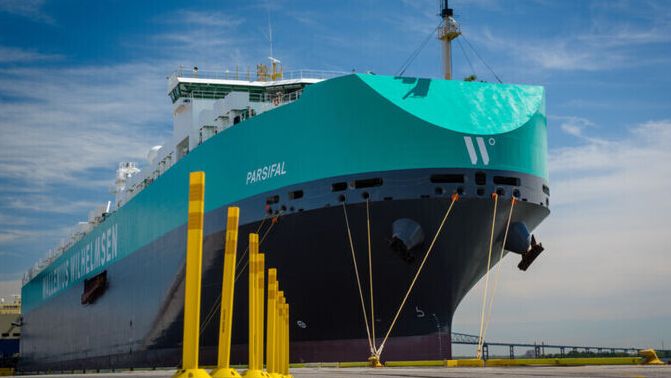Wallenius Wilhelmsen supersizes four newbuilds to 11,700 CEU
NewsWallenius Wilhelmsen’s four Shaper Class vessels being built at Jinling Shipyard will be enlarged from 9,300 CEU to about 11,700 CEU.
Wallenius Wilhelmsen faces a multi-million financial impact from vessel traffic suspension in the Port of Baltimore following the Francis Scott Key bridge collapse.

By registering you will have: